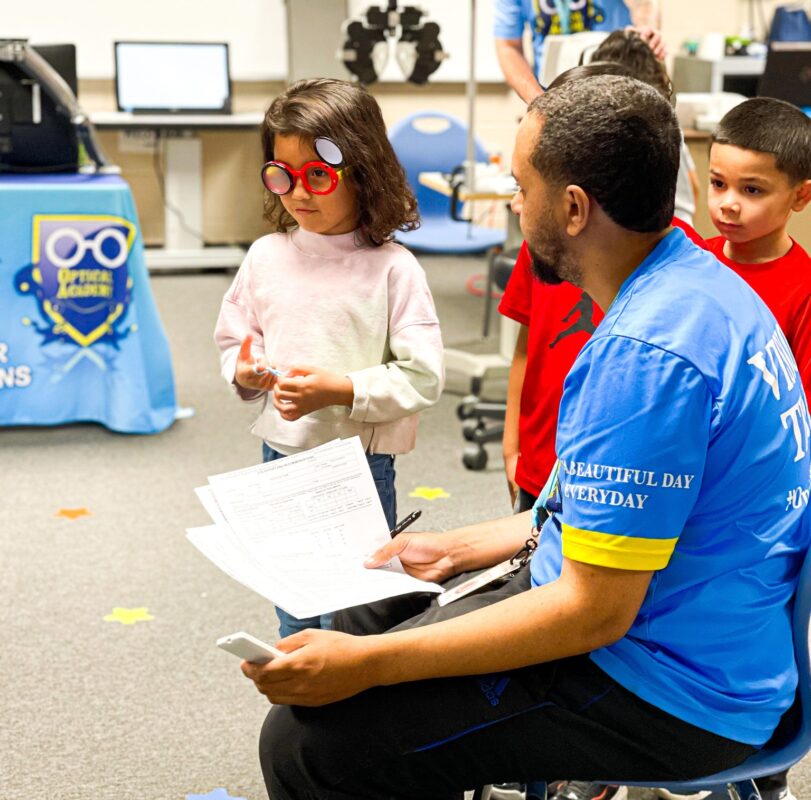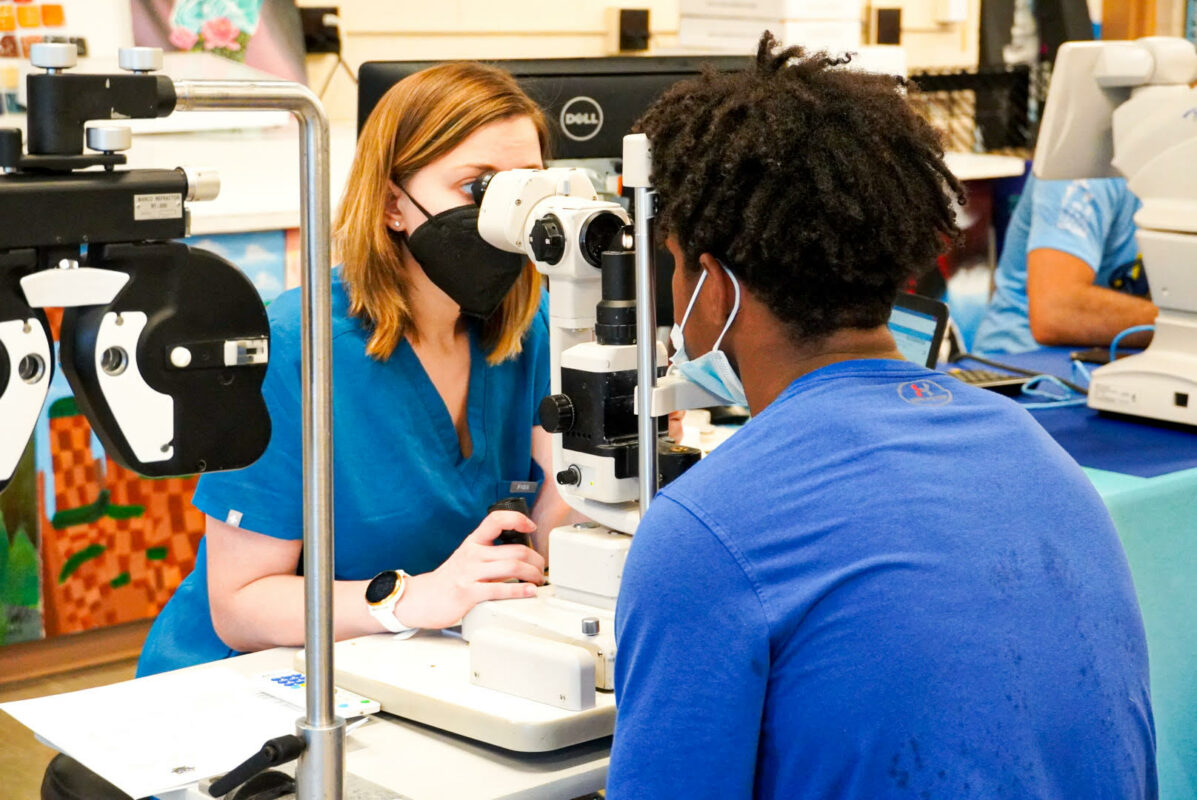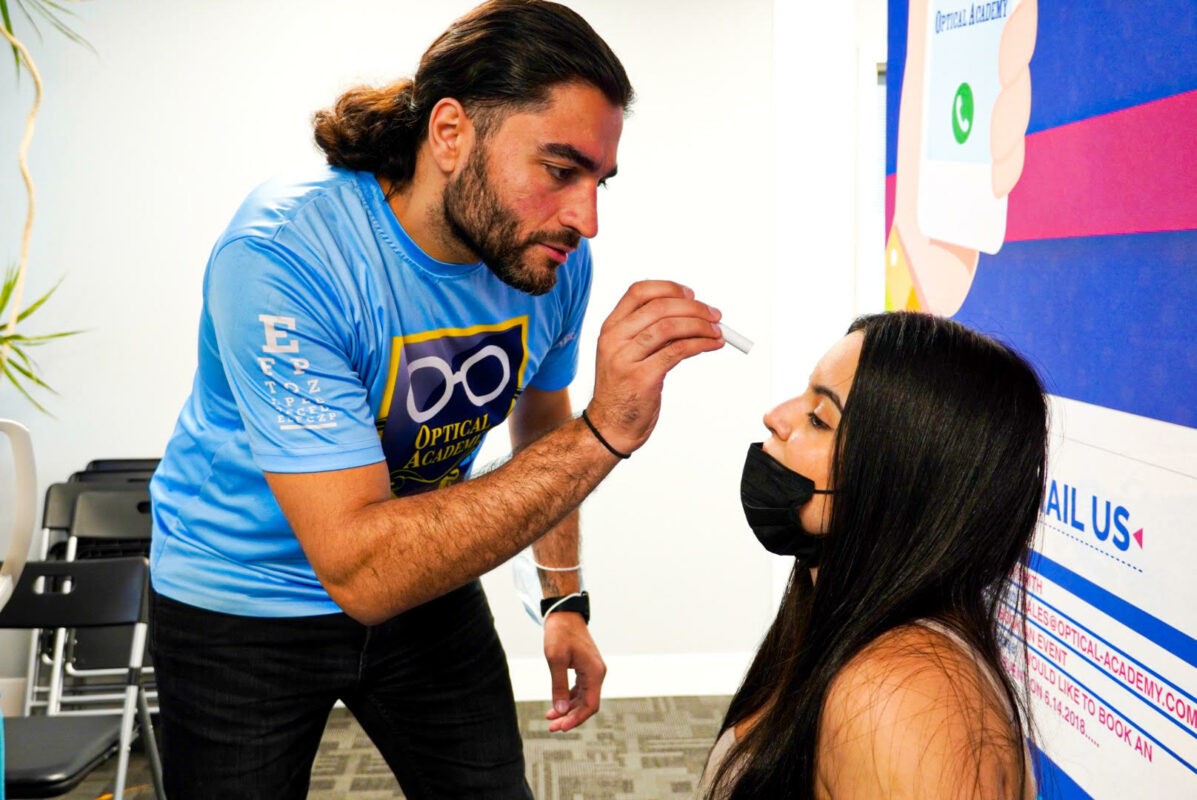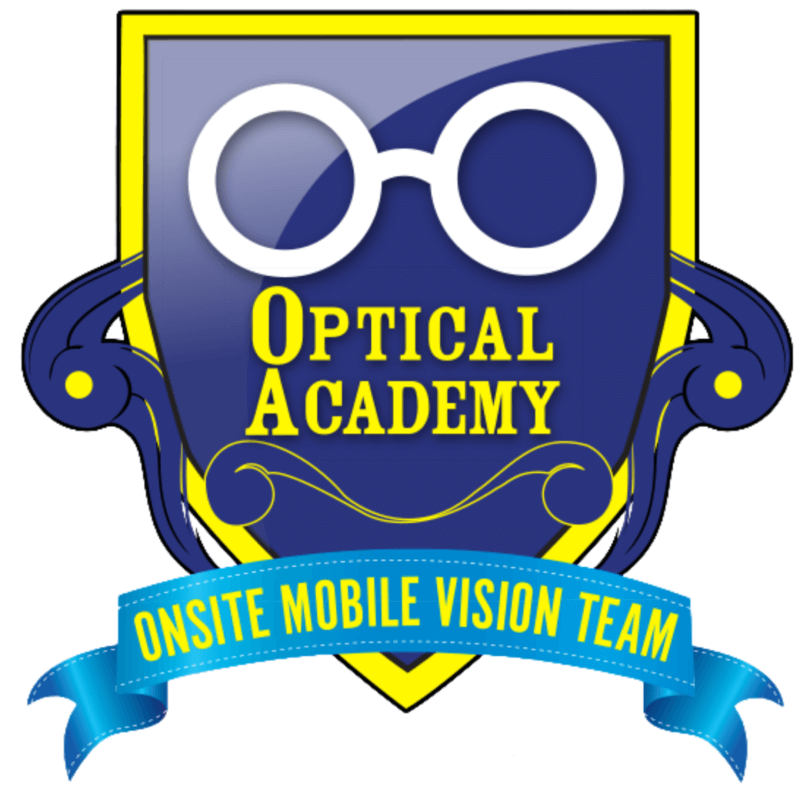It’s important to have your eyes examined for vision correction and to identify any health risks. Experts recommended that you get a comprehensive eye exam every one to two years. At Optical Academy, we believe that routinely getting your eyes examined is the most effective way for optimal visual health. We created this article to inform you when you need an eye exam, and how often depending on factors and your situation.

How Often Should a Child Have an Eye Exam
It’s really important for children to get an eye exam. If you have concerns about your child’s vision, don’t wait until it affects their learning process! About 1/10 of children are affected by correctable errors in eyesight and could lose out on potential success because they lack the necessary resources like glasses or contacts needed at each stage of development
Generally, you should have your child receive an eye exam at 6 months of age. If your child has risk factors, they should have them more frequently. You should then have them get a second eye exam at the age of 2-3 and when they enroll in school. This will ensure that they are seeing properly and can avoid any complications down the line with poor eyesight!
Comprehensive Eye Exams vs School Vision Screenings
In school vision screenings, either the nurse or pediatrician checks your child’s eyes for basic abnormalities. If you want to ensure your child’s vision and eye health development, it’s recommended to have their eyes examined by a pediatric optometrist.
Children of all ages (especially those who may be struggling academically) need to undergo comprehensive eye exams by a pediatric optometrist. These tests can include binocularity; refractive error testing including astigmatism or farsightedness which could affect focusing ability at school-related tasks. Color vision deficiency might prevent a kid from understanding what they see when looking into an RGB monitor screen.
Here at Optical Academy, we offer pediatric eye exams by an Optometrist to make sure your child’s vision and eye health are in their best condition. You can even book our Mobile Vision Team for a fun day of Onsite Mobile Eye Care for your school!
How Often Should an Adult Have an Eye Exam
Experts recommend that adults ages 18-60 have a comprehensive eye exam every two years and annual exams for seniors 61+. If you have a health risk factor, your optometrist would recommend how often you should revisit for an eye exam.
Risk Factors Include:
- Diabetes / High Blood Pressure
- Family History of eye diseases
- Eye Injury / Eye Surgery
- Prescriptions that need to be monitored
- Eyeglasses or contacts
Having an eye exam can detect health issues early on before noticing the symptoms. This can result in stopping or treating the health risk before it becomes life-threatening.
Bring the Optical Academy Mobile Vision Team to your worksite. We provide comprehensive exams that are convenient, fast, and accurate. We use advanced technology with top-of-the-line equipment to bring excellence into every aspect from examination up until eyewear delivery for you and your employees.
Signs that you need an eye exam
1. Haven’t had an eye exam in years
If you haven’t had an eye exam in years, it’s time to schedule one. An eye exam usually lasts around an hour and is a painless procedure.
It’s important to get your eyes examined even if you don’t have any problems with your vision. Many health risks, such as diabetes and high blood pressure, can be detected during a comprehensive eye exam. Early detection can help prevent more serious health problems in the future.
2. You get recurring eye strain and headaches
Having recurring eye strains may be due to having your eyes work harder resulting in headaches as well. This could mean your visual acuity could have changed, requiring you to use contacts or glasses.
3. Difficulty Seeing close or far objects
If you are experiencing any difficulties with your vision, it is important to visit an eye doctor. Your specialist will perform a comprehensive exam that includes tests for visual acuity and refractive errors to determine the best treatment option available. You may be nearsighted or farsighted. This may include prescribing contact lenses or eyeglasses to improve clarity.
4. Previous vision problems or health risks
The eyes are the windows to your health. If you have any issues with them, they must be checked out so your vision doesn’t suffer in later years and also because many diseases can be hereditary! Not only diseases but poor vision can affect you due to genetics.
Oftentimes people don’t realize how much their eye condition has impacted other parts of their body until there is an issue happening within themselves or someone close by who may become blind due to advanced stage when treated a little early on. Eye exams can be known to save lives and haven’t gotten much recognition for it.

Eye Exams
It is important to discuss all concerns you have about your eyes and vision with your optometrist. Informing your doctor about eye problems within your family history. This can help with recommendations, and give you the proper advice to keep your eyes and vision healthy.
How to Prepare for an Eye Exam
Bring Your Insurance Card
Your insurance can cover the costs of an eye exam. Make sure to bring your insurance card to verify your coverage.
Take Note of Any Symptoms or Medical History
As stated before it’s important to discuss any symptoms or eye problems within your family’s history. This will help with determining the cause of your symptoms or recommendations.
Bring Your Contacts or Eyeglasses
You should wear your contacts or eyeglasses to your eye exam so that your optometrist can assess how your current prescription is working. This way it can allow them to make any adjustments needed.

How Long Does an Eye Exam Take
In general, an optometrist will spend around 30 minutes examining your eyes. This time may vary depending on the condition of your eyes and the optometrist’s examination routine.
If you’re having a new prescription written, you may also need to wait a bit for the finished lenses to be ready. Usually, optometrists will have your prescription ready within a day or two. However, if you’re getting contacts, it may take a little longer since the optometrist will need to measure your eyes and order the contacts from the manufacturer.
Regardless of whether you’re getting a new prescription or picking up your old one, it’s important to take your time when choosing glasses or contacts. You’ll want to make sure that you get the right style and size for your face. Otherwise, you may end up with glasses that are too tight or too loose, or contacts that are uncomfortable to wear.
So, how long does an eye exam actually take? In most cases, it will take around 30 minutes. However, if you’re getting a new prescription, you may need to wait a bit longer for the finished lenses. Make sure to take your time when choosing glasses or contacts, and you’ll be sure to find something that looks great.


Worksite
All Employees Served With Direct Vision Care All In One Day At Their Worksite!.
Glasses2Classes
Vision screenings, eye exams, and eyewear for all students at their schools!
Community Events
Provide Easy Access To Eye Care & Eyewear for Your Entire Community!
At Home
Skip the trip! We travel directly to all fragile homebound patients!